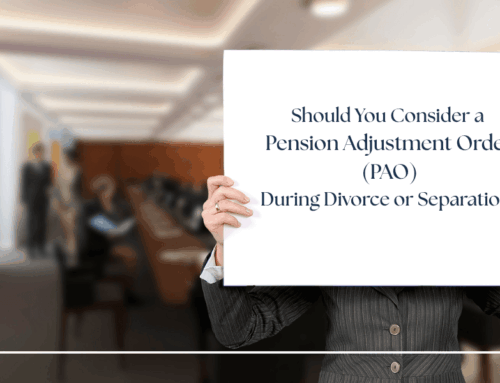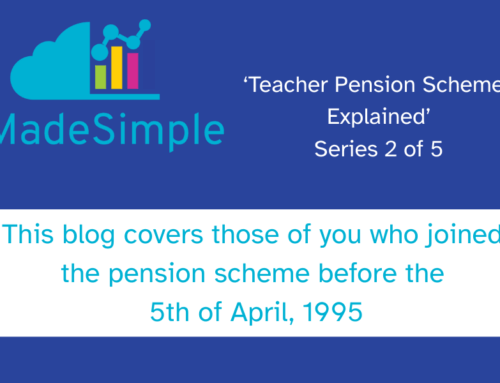Why should I create a budget?
The most beneficial thing you can do for your finances is create a budget. Budgeting allows you to track your spending, build your savings and work towards achieving your financial goals. A budget looks at your income and expenses and allows you to plan to meet your financial commitments.
How do I create a budget?
Starting off, it may be easier to budget per pay period. Once you have become accustomed to budgeting, you may find it easier to budget per month.
Step 1:
Write down your net income, this is your income after PAYE/USC/PRSI and pension contributions if applicable.
Step 2:
Jot down all the financial commitments you must meet each period.
For example:
- Rent / Mortgage Repayment
- Childcare / School costs
- Grocery Shopping
- Direct Debits: Electricity, Phone Bill, Wi-Fi, etc.
- Outstanding Debt: Personal Loan/ Credit Card
Step 3:
Calculate your surplus income. After all financial commitments are met, you will be left with surplus income.
Find a ‘home’ for this surplus income otherwise we engage in mindless spending.
How do I budget my surplus income?
Savings
The number one rule of budgeting surplus income is to pay yourself first. Save an agreed amount each pay period before you start spending.
If you start spending before saving, you will quickly find out there is not much left to save!
Build up your savings in a way that satisfies short-term needs and medium to long-term goals.
Emergency fund
You should have a minimum of €1,000 in your bank account, readily accessible in times of crisis. Once you reach €1000, you can increase your emergency fund. Generally, you should aim to have 3 months net pay in your emergency fund. For those who are not in secure employment, 6 months net pay should suffice.
Budget for Milestones
You may want to buy a home – to do this you need a deposit. As a first-time buyer, you will generally need 10% and if you are a second time buyer, it can be up to 20%.
Be consistent with your savings, not just for the bank’s approval but also to make this dream a reality. Agree on an amount you need and be consistent and tenacious in your saving habits!
Retirement
Replacing your income in retirement is done by saving today. Depending on your stage in life, it may be time to think about putting extra money aside each month to fund a more comfortable retirement.
Pension contributions to a PRSA or an AVC will improve your income in retirement. Most importantly, the contributions you make are eligible for tax relief at your marginal rate (20% or 40%).
Sinking Funds
Aside from financial commitments, we also have personal commitments we aim to meet. The surplus income we have each month also needs to be included in our budget. This can be managed through a ‘sinking fund’. A sinking fund is a fund set aside to pay off debt. In this scenario, we use sinking funds to cover once off annual expenses.
A sinking fund could be used for expenses such as:
- Birthdays
- Christmas
- Back to school
- Insurance: Medical/House or Car
- Holiday
Your sinking fund is best kept out of sight. You may find it useful to have a direct debit set up each month to go into your credit union or alternatives such as Revolut.
The benefit of having a sinking fund is the ability to save a smaller amount every month to avoid the financial pressure of paying a larger amount in one go.
How can I manage my debt?
Having a personal loan or car loan repayment each month can drain your surplus income. Ideally, you should be aiming to reduce your debt liability as quickly as possible. However, depending on surplus income, this is not feasible for everyone. When deciding to reduce your debt capacity, list out what you owe, the repayment needed and the interest rate.
Two methods to clear debt:
Snowball Method: Beginner
- List debts smallest to largest in terms of interest rate
- Make minimum payments on all debts except smallest
- Pay as much as you can off the smallest interest debt
- Repeat until all debts are paid
Advantage:
- Sense of achievement as you see debt being cleared quickly & motivates you to keep going
Disadvantage:
- Can be more expensive in the long run as you’re tackling the lower interest debts
Avalanche Method: Advanced
- List debts largest to smallest in terms of interest rate
- Make minimum payments on all debts except largest
- Pay as much as you can off the largest interest debt
- Repeat until all debts are paid
Advantage:
- Higher interest debt paid off saves money
Disadvantage:
- Depending on surplus income, it can take a little longer to pay off which can be hard to stay motivated!
Top tips for sticking to your budget!
- Use Cash – Try to avoid using your card if possible. This may be difficult at present, but you can get creative. Monitoring your current account on a daily basis may be useful. It is very easy to become unaware of our spending when we are tapping our card to pay. Using cash creates awareness of our spending.
- Pay Yourself First – When you get paid, move your savings for that budget into your bank account/credit union straight away. If you put it off there is a very big chance you may spend some or all of it!
- 72 Hour Rule – If you see something you like, wait. If you hold off for 72 hours you may find that the urge to impulse buy has subsided.
- Restrict Access – Saving is hard and there can be a lot of temptation to splurge. If you are finding it hard to resist temptation you may find it beneficial to move your savings into a fixed term account or even the credit union. These accounts force you to wait for access reducing the ability to impulse buy.
- Live Within Your Means – If you are not able to buy something right now, SAVE. Create a sinking fund and save money each month for your desired purchase. Avoid (where possible) taking out credit out on items as it increases your debt repayments and lowers surplus income.
- Avoid Overdrafts and Credit Cards – Stay clear of, where possible, purchasing items on credit as it increases your debt repayments and lowers surplus income. Become your own overdraft/credit card by saving this money somewhere easily accessible in times of need.
For more information about creating a budget, contact us today.
What Does the Financial Planning Review Cover?
Step 1
You – Complete a short online application form
Step 2
We – Generate your personal report that outlines your current benefits.
Step 3
Together – We schedule a review online (we use Zoom, or a platform you may suggest) or over the phone to discuss what options are available to you.
After we complete the review, many employees are delighted to have their options regarding pension planning, salary protection, life protection, savings and investments explained to them so clearly. Not only that, but we can also set up policies for you all online in a very fast and efficient manner.
Get your complimentary, personalised review today! You have nothing to lose!






